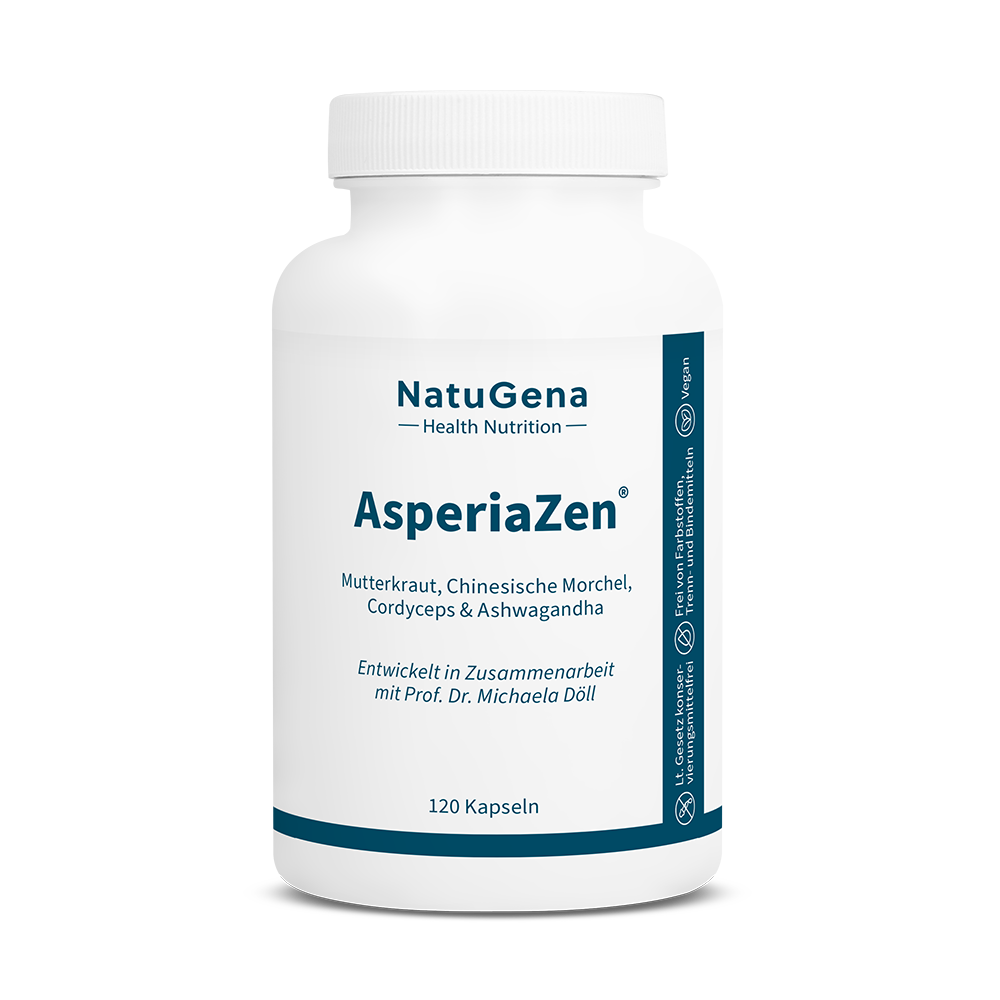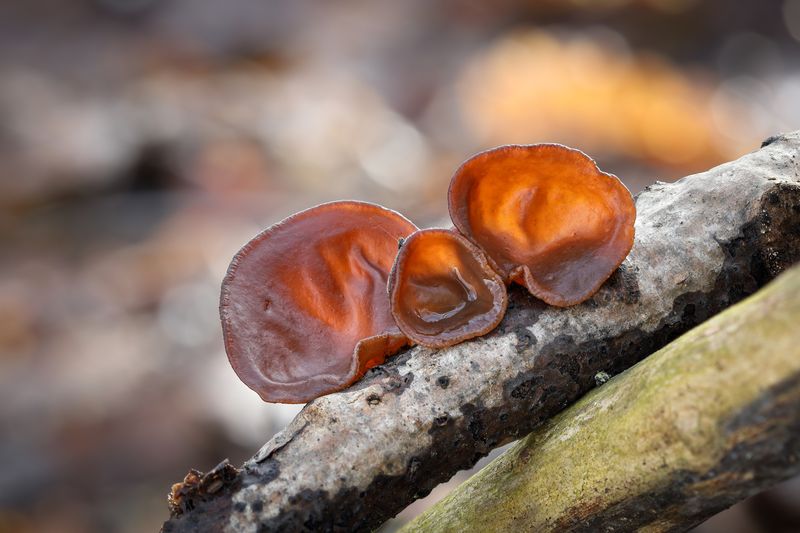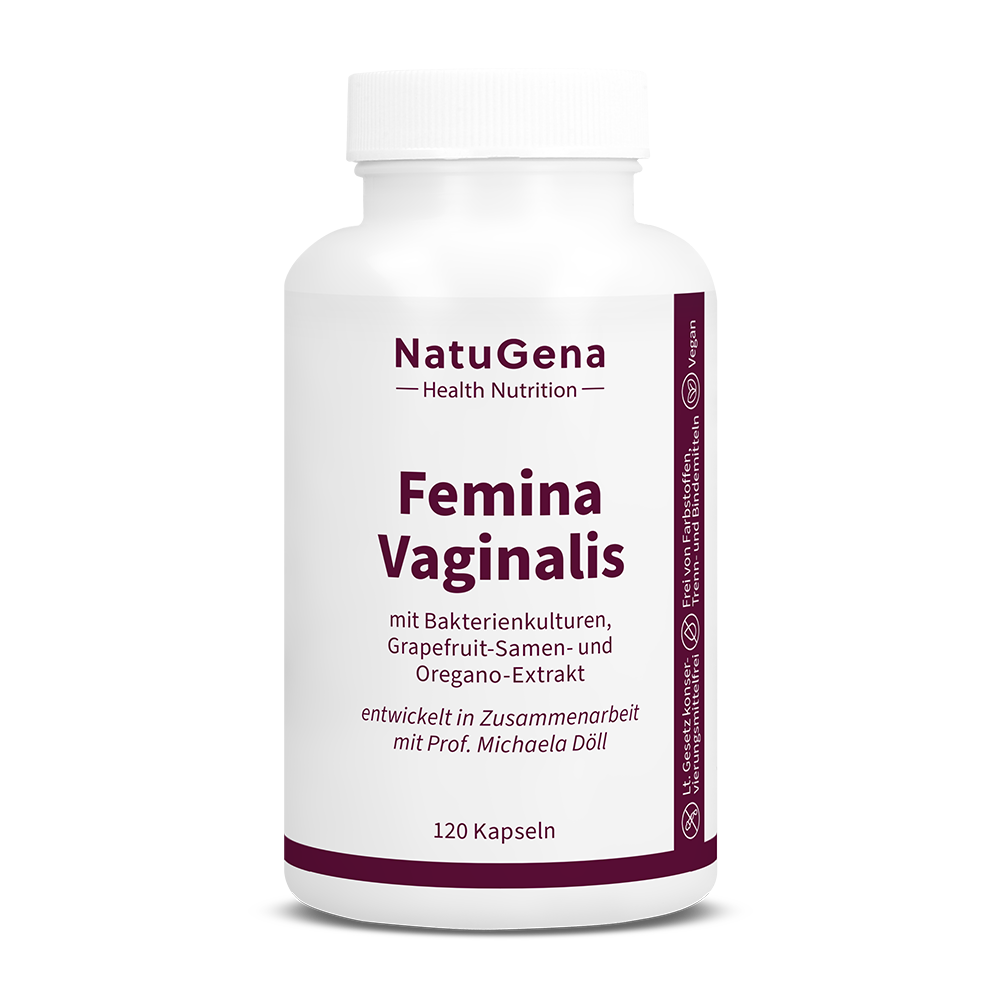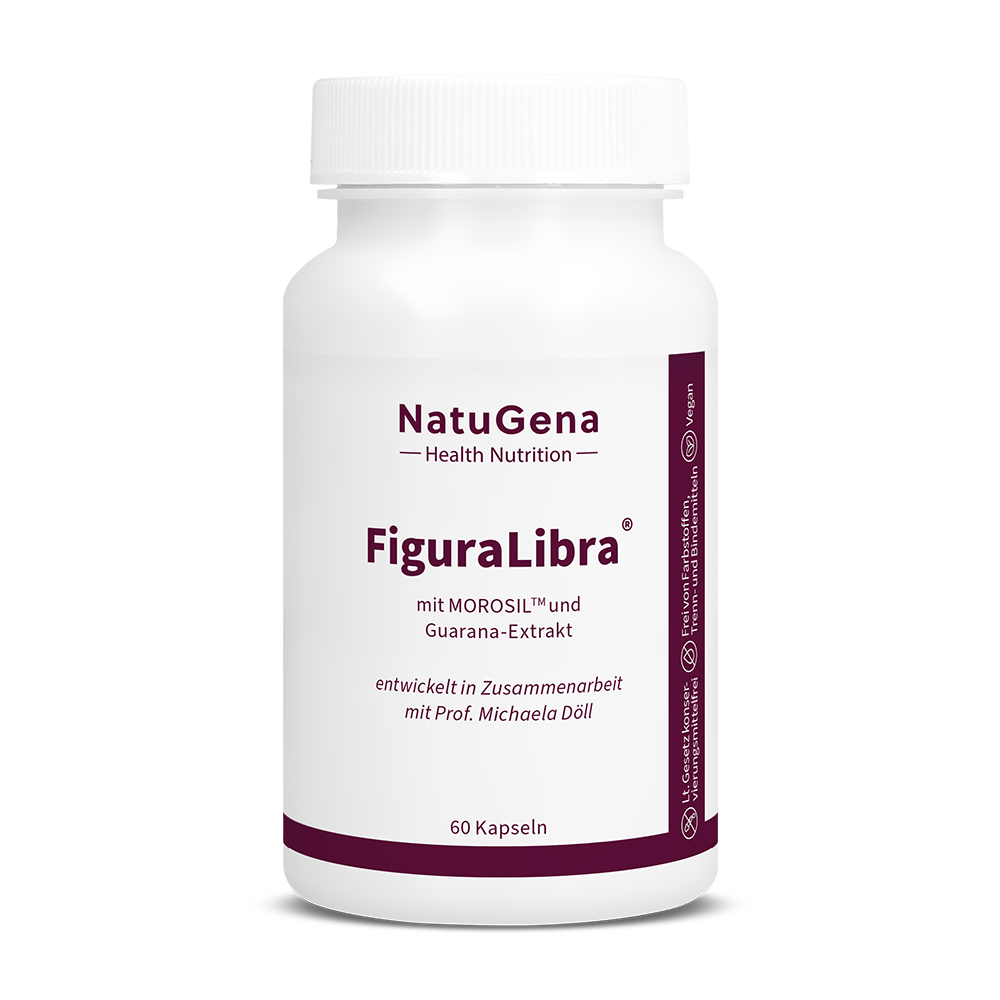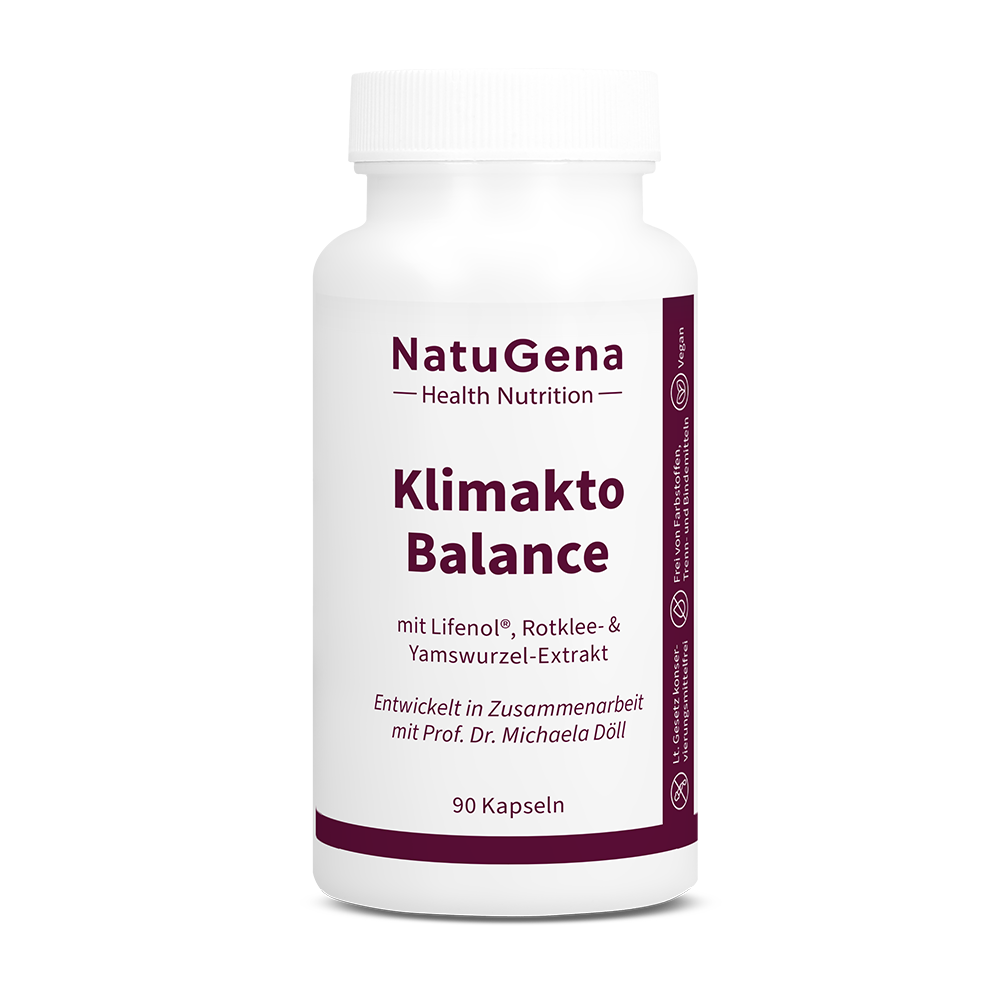Developed by women for women
Many women find themselves under double stress from job and family life, sometimes the stress goes so far that physical symptoms show. Prof. Dr. Döll has used her wealth of experience to select and compile herbs from TCM and Ayurveda to provide special support for throbbing head pressure. Stress can bring unpleasant side effects: Sufferers complain of nausea, vomiting and dizziness. They are often very sensitive to light, sounds and smells.
The formula features mainly motherwort, which is known to inhibit the dilation of blood vessels in the head
Various other tips can help relieve stress-related symptoms. Engage in regular light endurance exercise, relaxation techniques help, support your body with complementary medicine methods such as acupuncture.

Motherwort
Motherwort has been cultivated as a medicinal plant for centuries. In Great Britain, the plant was so valued that it was also given the name "English aspirin". It contains 0.5 to 0.9 percent essential oil, with camphor and chrysanthenyl acetate as the main components. In addition, 0.5 to two percent sesqui-terpene lactones are present, including the ingredient parthenolide. To be fully effective, it must be taken regularly over a long period of time and should not be taken during pregnancy and breastfeeding.
Magnesium
Magnesium contributes to normal functioning of the nervous system and supports normal mental function. While calcium is responsible for muscle tension, magnesium is used in muscle relaxation: it controls the transmission of excitation from the nerves to the muscles and ensures that the further influx of calcium is prevented, thereby lowering the excitability of the nerves again.
Chinese morel
Chinese morel is also known as Mu-Err mushroom, tree ear or Judas ear. It is an edible and vital mushroom that is found almost all over the world. In traditional Chinese health science, the morel is often attributed with a positive influence on the circulatory system. It combines important ingredients such as potassium, calcium, magnesium, phosphorus and silicon. In addition, various vitamins of the B group and high-molecular sugar compounds, such as polysaccharides, can be detected in the mushroom.
B vitamins
The B vitamins contained contribute to normal functioning of the nervous system and reduce tiredness and fatigue. Vitamin B6 also contributes to the regulation of hormone activity.
Cordyceps
Cordyceps (Chinese caterpillar fungus) is a vital mushroom and, in addition to numerous vitamins, minerals and trace elements, contains special amino acids such as cordycepin, ergosterol (a precursor of vitamin D) and L-tryptophan, as well as various peptides and glycoproteins. The mushroom, which is threatened with extinction, is only found in the high mountains (on the Qinghai-Tibet Plateau) in southwest China and in Tibet. Fortunately, the mushroom mycelium of Cordyceps sinensis can nowadays be grown excellently on a plant culture substrate such as rice. In TCM, it is known as a rejuvenator, an aphrodisiac and a means of strengthening the vital force, kidney and lungs.
Ashwaghanda
Ashwaghanda is an adaptogen used as a medicinal plant in Ayurveda and provides important withanosides and alkaloids. Adaptogens are active plant compounds that help the body adapt to internal and external stress. Ayurvedic medicine appreciates the root for its many applications.
Developed in collaboration with Prof. Dr. Michaela Döll.



